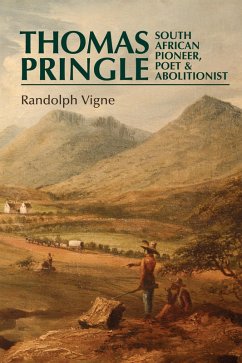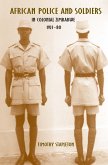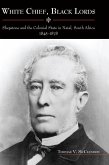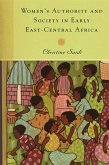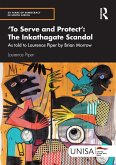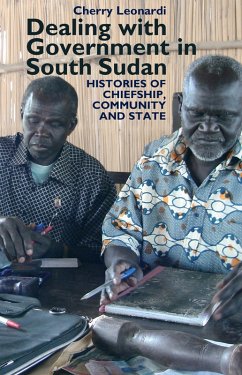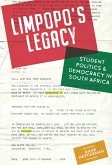A fine biography. [It] is a most satisfying book and an important contribution to South African scholarship. CAPE TIMES
Scottish poet, fighter for human rights in the Cape Colony, and abolitionist, reveals the role this key Enlightenment figure played in Africa and Britain.
This biography of Thomas Pringle (1789-1834), poet, fighter for human rights in the Cape Colony, and abolitionist, reveals the role this key Enlightenment figure played in Africa and Britain. Honoured in South Africa as 'the father of South African English poetry', for his part in achieving a free press, for his fight for the settlers' rights in the colony, in Scotland as the founding editor of Blackwood's Magazine, and in England as instrumental inbringing in abolition, Thomas Pringle has not yet had the attention he deserves.
Born on the Scottish Borders, Pringle entered literary life in late Englightenment Edinburgh, but in 1820 led a party of settlers to theCape Colony. After running a school, launching a literary journal and co-editing the Cape's first independent newspaper, he formed a group to fight for democratic rights for both the settlers and the dispossessed indigenous people. His biography reveals the important part he played in the literary and political world across two continents, and in championing the Khoisan and the increasingly dispossessed Nguni people. On returning to England he became Secretary of the Anti-Slavery Society, and on 15 June 1834 announced the implementation of abolition.
After actively opposing the apartheid government in South Africa Randolph Vigne worked in exile as a London publisher andlatterly, in Britain and South Africa, as author and editor of European and African historical studies.
Southern Africa (South Africa, Botswana, Namibia, Lesotho, Swaziland, Zambia and Zimbabwe): UCT Press
Scottish poet, fighter for human rights in the Cape Colony, and abolitionist, reveals the role this key Enlightenment figure played in Africa and Britain.
This biography of Thomas Pringle (1789-1834), poet, fighter for human rights in the Cape Colony, and abolitionist, reveals the role this key Enlightenment figure played in Africa and Britain. Honoured in South Africa as 'the father of South African English poetry', for his part in achieving a free press, for his fight for the settlers' rights in the colony, in Scotland as the founding editor of Blackwood's Magazine, and in England as instrumental inbringing in abolition, Thomas Pringle has not yet had the attention he deserves.
Born on the Scottish Borders, Pringle entered literary life in late Englightenment Edinburgh, but in 1820 led a party of settlers to theCape Colony. After running a school, launching a literary journal and co-editing the Cape's first independent newspaper, he formed a group to fight for democratic rights for both the settlers and the dispossessed indigenous people. His biography reveals the important part he played in the literary and political world across two continents, and in championing the Khoisan and the increasingly dispossessed Nguni people. On returning to England he became Secretary of the Anti-Slavery Society, and on 15 June 1834 announced the implementation of abolition.
After actively opposing the apartheid government in South Africa Randolph Vigne worked in exile as a London publisher andlatterly, in Britain and South Africa, as author and editor of European and African historical studies.
Southern Africa (South Africa, Botswana, Namibia, Lesotho, Swaziland, Zambia and Zimbabwe): UCT Press
Dieser Download kann aus rechtlichen Gründen nur mit Rechnungsadresse in A, D ausgeliefert werden.

